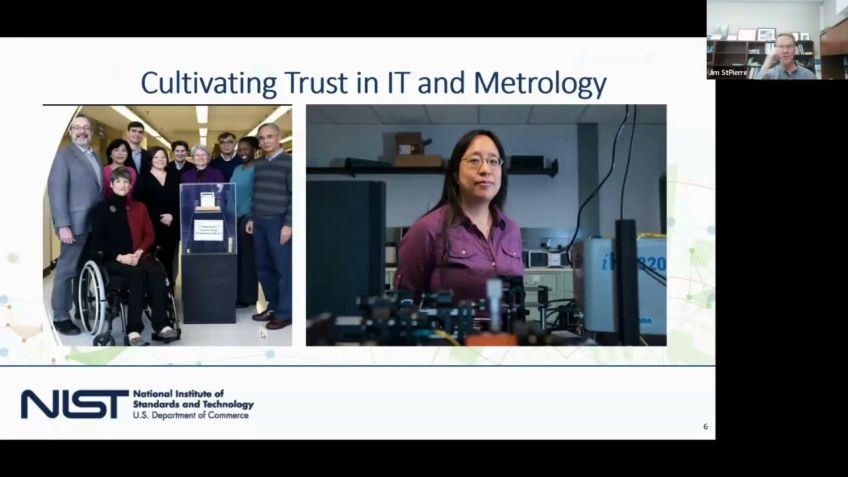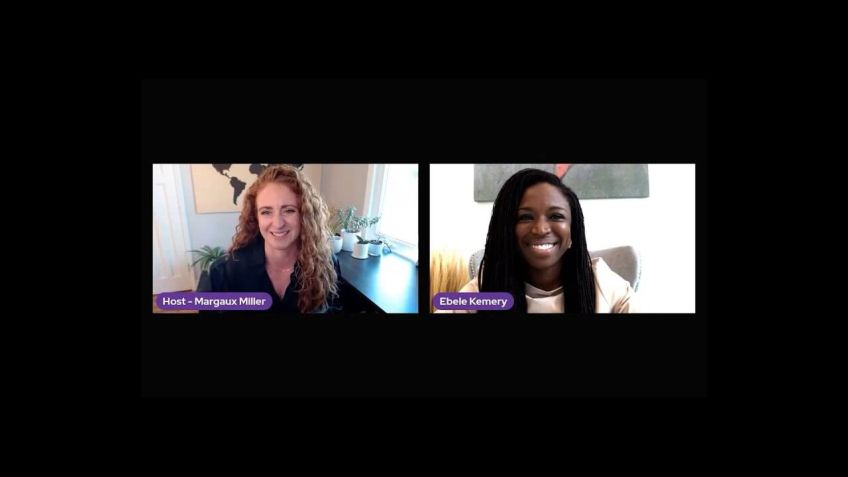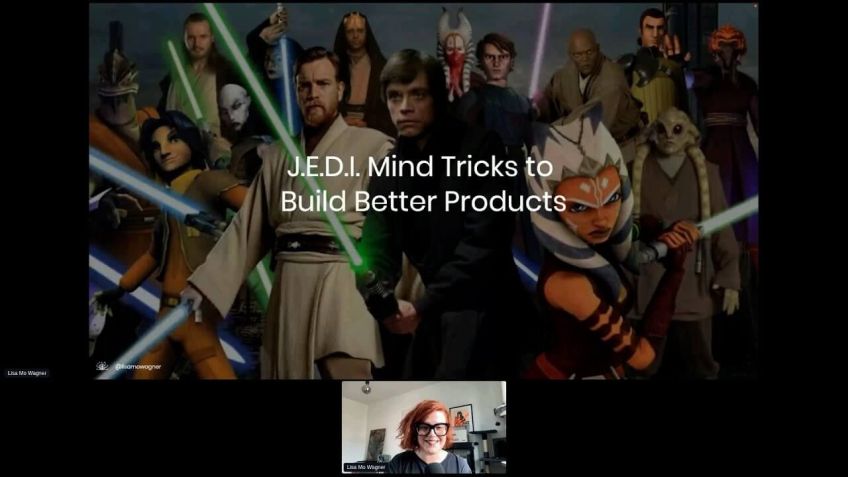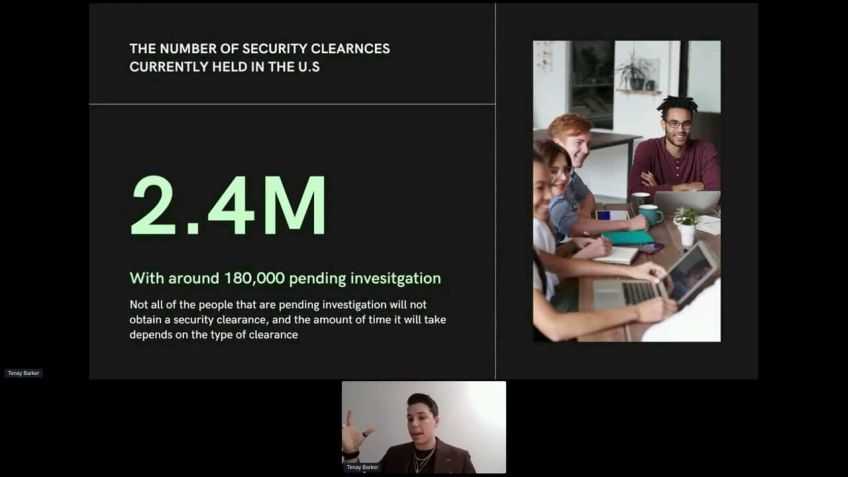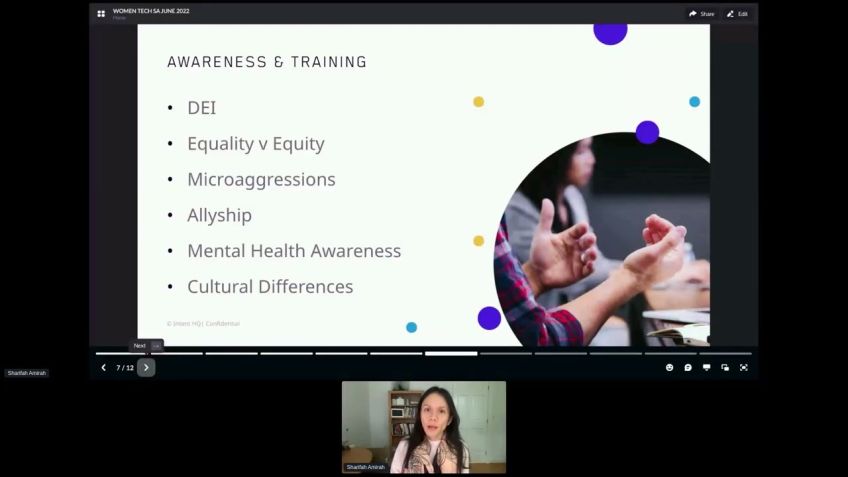Why representation matters in digital content and beyond by Joyce Osei
Why Representation Matters in Digital Content and Beyond
Hello everyone, and welcome to today's enlightening discussion on the importance of representation in digital content and beyond. Our guide through this thought-provoking conversation is Joyce Ossa, a diversity and inclusion consultant, author, and advocate for change in the tech industry.
Innovative, Purposeful and Impactful Women in Tech
Joyce presents us with an inspiring collection of women who have made significant contributions in the tech industry. These women have not only been purposeful and impactful but have also led the way in terms of innovation. The list varies from Ada Lovelace – the 19th-century mathematician that many regard as the first computer programmer, Dr. Fei Fei Lee – a renowned professor at the University of Stanford, Dr. Sue Black – the founder of Tech Mus, to contemporary figures such as Kiki Onandi, the founder of the Black Young Professionals Network, and Kimberly Bryant, founder of Black Girls Code. Other significant figures include Katherine Johnson – a former mathematician who worked for NASA, Jacqueline de Rocca, the president of Tech UK, and Dr. Anie Imaan, the founder of STEMS UK.
The Lack of Representation: A Call for Change
Despite these exceptional figures, Joyce highlights that we need to ask a crucial question when we create digital content: whose voice is missing from the conversation? The tech industry is notorious for its lack of diversity, with only 19% of women in the UK workforce working within it. More shockingly, black women make up a meager 0.7% of the tech force.
Making a Difference: A Personal Experience
Motivated by the underrepresentation she noticed in children's books, Joyce embarked on a journey to change that by publishing her first children’s book. It was a step towards providing a sense of inclusivity and giving children from various ethnicities the role models they deserve. Inspired by her grandmother and her kids, Joyce wrote The Adventures of Amer and Cuisine Barbados, contributing to an area grossly underrepresented in literature. She asks her audience - what experiences could you share?
Increasing Representation in Digital Content
Joyce provides a clear approach to increase representation in digital content:
- Start by sharing your passions and lived experiences – be it through blogs, video content, or speaking online.
- Be deliberate and intentional.
- Always ask whose perspectives are we missing and use the diversity strands (gender, ethnicity, sexual orientation, disability, age, and religion) to help answer that.
The Impact of Improved Representation
Increased inclusivity gives clients and customers access to connect with you, have new conversations and explore possibilities. When women are better represented, it leads to an increase in roles models, thus attracting more female talent into the tech industry. Inclusive companies are more than 1.5 times likely to be innovative, and diverse management teams lead to 19% higher revenue, which only highlights the benefits of improving diversity and representation.
Joyce ends her presentation with an engaging Q&A session, leaving her audience with insights and determination to enact personal and organizational change in representation. She invites everyone to connect with her on LinkedIn for further conversations about diversity and inclusion in the tech industry, increasing representation in digital content, and sharing personal experiences to help enact change.
Contact Joyce Ossa for further insights on tackling underrepresentation – let's continue to be innovative, purposeful, and impactful.
Video Transcription
Good morning, everyone. Um And welcome to today's presentation, Why Representation Matters in digital content and beyond. My name is Joyce Ossa and I'm a diversity and inclusion consultant and an author. So today is uh very much around.Well, the context of the conference is around innovation, being purposeful and being impactful. And I have got um a slide here with just a selection or a handful of women that I have found that work in the tech space that are doing exactly that they've been innovative, purposeful and impactful with what they're doing. So we've got Ada Lovelace um Doctor Fei Fei Lee who is uh a professor at the University of Stanford. We've also on, on this is on the slide deck. We've got um Doctor Sue Black, the founder of tech Mus Kiki Onandi, the founder of BYP Network, the Black Young Professionals Network. And of course, Katherine Johnson who works for uh NASA uh Kimberly Bryant, founder of Black Girls who code and Jacqueline de Rocca, the president of Tech UK.
And last but not least, Doctor Anie Imaan, who is the founder of STEMS as well, which is uh an organ in the UK and these are just some of the phenomenal women that are in the industry or have been in the industry that are um you know, fostering innovation with purpose and impact.
And I know there's a lot more women out there as well that are doing that in the tech industry. So when we're creating digital content, do we ever ask the question whose voice is missing from the conversation? Because if not, then maybe we should. Now, I'm really excited to, to be sharing with you um today because in this session, what I'm gonna cover is what inspired me to tackle underrepresentation um by writing and publishing my first children's book. Uh I'll also share with you some of the insights I got uh whilst working in the diversity and inclusion space and what planted my desire to work in tech. And finally, I'll be sharing with you how you can use your lived experiences to increase representation in the digital content your company is creating. So before I get into that, I just want to share a little bit about me. So I'm on a, I'm on a mission to inspire impact and innovate with entrepreneurs and senior leaders in the tech industry all through diversity and inclusion. I've been working in this space for nearly 10 years and has been predominantly around helping organizations to increase the representation they have of their uh female talent.
I'm very, very passionate around increasing representation, particularly through digital content um because I just think it has so many benefits and I will go on to talk about that in, in a bit more detail. But I am a author, I have written the adventures of Amer and Cuisine Barbados, which is my first children's story. I've also contributed to um two anthologies. The first being voices of hope and the second is uh voices of resilience. And finally, I am the co-founder of a community called Fent Preneurs in Action. And this is uh a community of female entrepreneurs that collaborate, connect and create. So hopefully, that's given you a little bit more about me, right? Let's dive straight into this. 19%. 19%.
Can you guess what I'm referring to here? Type it in the chat? 19%. What could that be? What am I referring to? 19% type in the chat? Anybody? OK. So 19% of women are well in the tech force, 19% of women in the workforce are in the tech industry. And this uh statistic is referring to the UK. Now, this is partly due to what partly due to um why I was um inspired to tackle representation as well, but I'm going to share with you uh what led to me, what led me on this path? So just let's go back a bit in time. So it's the summer of uh 2011. Actually, I know it's the 31st of July. I'm seven days away from giving birth to my second child. I don't know what I'm having because I didn't want to find out. So, anyway, on that day I'm reading and during that summer I've been reading to my daughter who's three at the time. Lots and lots of stories. And in that moment I realized something, I realized that actually none of the characters in the stories that I've been reading to my daughter look like her. And I asked myself the question actually, why is that?
And then that's followed by a thought, oh, someone, someone should really write a story with uh Children with from African Caribbean characters. You know, I don't think that person will be me because I'm on maternity leave and I'm not an author so fast forward. Three years later, I start working in diversity and inclusion. And I come across a report called the uh focus on the pipeline. And it's a report done by uh Alexander Man Solutions. And they talk about in this report, they talk about some of the things that impact a woman's career, particularly women in middle management. And one of them was the lack of role models in uh the organization. The second thing was around um lack of sponsorship from um senior leaders in in the organization. And the other one, the third one was around networking. So these three things impacted a woman's career, particularly in the middle management um at middle management level. And it wasn't specific to the tech sector, but it was more broad, broadly speaking. So it was in this moment, as I'm reading the report, the piece around the lack of um role models really resonated with me. And it, it made me realize what I'd identified three years prior when I was on maternity leave was that the lack of representation in children's stories was around actually having lack of role models as well for Children of color and for, you know, Children from other um ethnicities as well.
So fast forward, 2016, I decided that I'm gonna write my book. Where did I start? I started with what I knew. So I was really inspired by my grandma who was from Barbados and also by my Children, by that time, they'd grown up a little bit as well. So they were full of character. Um And so I used all these experiences and created that first children's story that I just shared with you, the adventures of Emma and Chrissy in Barbados. Now, what I want to ask you is, what experiences could you share? What experiences could you share pop that in the chat? Pop it in the chat. What experience could you share? I shared around, you know, um experiencing Barbados. Are there any experiences that you could share pop that in the chat? That would be really good. So, yes, three years later, I started working in Bo in diversity and inclusion and actually what I learned in that time is that and you will be no stranger to this is that the tech industry is notorious for its lack of diversity um sharing with you some stats as well. You know, black women make up 0.7 not 0.7% of the tech force. And this is according to B CS in uh B CS Society in 2020. Now, another key stat is that companies that identified as more diverse and inclusive are 35% more likely to outperform their competitors. And that was research done by mckinsey. What I also learned some of the insights I got working in the diverse and inclusion space is that inclusive companies are more than 1.5 times more likely to be innovative.
Uh diverse management teams lead to 19% higher revenue and that's from um BC g.com. You can check that out as well and you'll see all the, the um the references for where I got these stats from as well. And the really stark stat I came across was that 1% of children's books published in 2017 in the UK had a minority ethnic main character. And this actually then explains why that summer when I was reading lots of stories, none of the characters actually looks like my c my like, like my daughter. So how can you increase representation in digital content? Well, the best way to do that is by starting with you, share your passions and your lived experiences through blogs, video content and speaking online, if your organization is, is doing any of that or even outside of your organization, be deliberate and intentional in your actions and with what you're going to share and always ask whose perspectives are we missing, whose perspectives are we missing?
And to help you answer that question, refer to the diversity strands. So you've got gender, ethnicity, sexual orientation, disability, age and religion. So check those out as well and share your passions and your lived experiences as much as possible. Now, why does it matter?
Well, it matters because and we mentioned this before, women are grossly underrepresented in the tech industry, only 19% are in the workforce. Uh When you increase representation, this also helps to increase the role models as well and can go on to attract more female talent.
Um This is all in my experience as well. Uh by increasing the representation in digital content, you're enabling others to know that they are not alone, but more also more importantly, it gives a clients and customers access to connect with you and to have new conversations and explore possibilities. And this takes us back to the beginning.
You know, it's all around being innovative by, by increasing representation that also shows and demonstrates um innovation um purpose and also impacts that you have. So, has anybody got any questions? Please do share, I'm gonna check the chat. No, great. Any questions on what I have shared with you? Thank you, Tina. Thank you for your comments. You're really interested in the presentation. Thank you. Oh, thank you, Mary. Yes. The stats were shocking and that it was those stats that really um inspired me to want to tackle the underrepresentation um and using my experiences to just share and it's so important that we, you know, we really do need to, to share. Great. So who is going to be sharing their perspectives, some of their lived experiences now through the digital content, their organization creates, he's gonna be doing that, Mary. Are you Tina? Great. So Mary said, you know, some of the stuff you shared was shocking for the stats and it makes me think but she makes her really determined. Great. Thanks Tina. It says in Tina shared that in Finnish media a couple of years ago, only 20% of interviewed experts were women. Now we have female Prime Minister as a role model.
That is absolutely, you know, absolutely shocking, but also wonderful that Finland now has a female Prime Minister to, to um show what's possible. Thank you for sharing, Mary. There's not a lot of black people working in data or in the data team, right? Yeah, and it's also being able to create that space, isn't it? So that you can be heard? That's AAA key part of inclusion. Great. Thank you. I hope that has been helpful for you. And I hope there was, you know, these are practical steps that you can put into action. So that yeah, you are starting to increase the representation in the digital content with you by sharing your pers, but by sharing your perspectives and your lived experiences as well. So you can contact me if you haven't got any more questions, you can contact me um through linkedin. And yeah, if you've got any more questions, you can ask me through there and I will answer them. Ok. So thank you all so much. It's been wonderful connecting with you. Thank you and please do reach out to me on linkedin so that we can connect. I'd love to continue the conversation um offline. Thank you all the very best. Take care. Bye.

